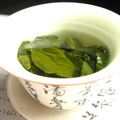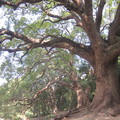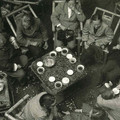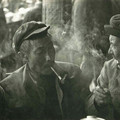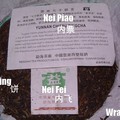Korean delicacy
 5.0 This review helped: 0 / 0
5.0 This review helped: 0 / 0
I was thinking of Korean green tea for a long time, but somehow there was no opportunity to taste it. Then, during this pre-Christmas rush, I draw my attention to one photo - the one where the tea bush is surrounded by wild greenery and bamboo. That picture got me. It is such a lively and full of energy snapshot. Although it is now time for some Shu Puerh and green tea season had passed, I bought 50 grams of SeJak and 2x5g samples of JungJak and DaeJak for comparison.
SeJak comes from the first harvest. "Se" means and refers to a thin leave size. "Jak" is short. JungJak comes from the second harvest and "jung" refers to the middle or also medium (leave). DaeJak is the third harvest and "dae" is great. This is a short lesson from Peter's Korean blog on pu-erh.sk ;-)
Tea was packed and sealed in Korea. So when I opened the bag, there was very pleasant and fresh odor coming out. SeJak’s brew is gently green. The taste is delicious and quite specific. There is a taste of grass. The taste is a combination of Japanese teas (sencha) and Chinese green teas from Yunnan. The flavor also contains flavors of high mountain conifers essence oils. The taste is very close to "Yunnan Bao Hong" that I bought a year ago from Yunnan Sourcing and already wrote about it here.
It's nice and delicate tea for special occasions. The price is quite high €19.90 / 50g ... but definitely worth it :-)
I also compared all three teas - SeJak, JungJak and DaeJak. Originally I wanted to prepare 3x 5 grams of tea, but still it seemed to me too much. So I weighed only 3 times 3g and even though I was pretty blasted. I could not sleep even after 8 hours.
Tea in dry form is somehow not different. Color, leaf size and fragrances are quite similar for all 3 teas. The color of the brine is also the same - bright yellow green. The taste and endurance various for all three "models".
SeJak:
Sweet, rich, vegetal, very little bitterness in the aftertaste, salty, strong essence of alpine conifers, intense aroma, long stamina, up to 6 infusions. Simply superb!. 50g / €19.90
JungJak:
Less spicy compared to SeJak, missing the taste of conifers, subtle vegetal, without bitterness. Overall, the aroma and taste a bit lighter and sleeker compared to SeJak and DaeJak. Also great tea. 50g / €16.60
DaeJak:
Spicy fragrance, vegetal aroma, almost like dried root vegetables. Sweet aroma of pine needles, perhaps even algae (?), slightly salty. Significant taste of grass similar to SeJak. Light bitterness. DaeJak and SeJak are quite similar in taste. But SeJak has more intense and longer lasting flavor. DaeJak is losing its power just after 3rd infusion. It's also a great tea. Weaker stamina is compensated by lower price 50g / €10.90
Was this review helfule? Yes / No
 1 review
Added 10.12.2014 by Eternal Spring,
Tea status: [386] A
6127x
1 review
Added 10.12.2014 by Eternal Spring,
Tea status: [386] A
6127x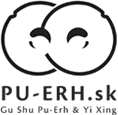

 Shops
Shops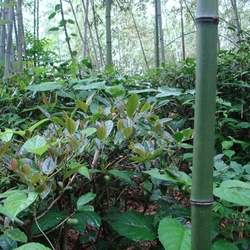












 Share on Facebook
Share on Facebook











